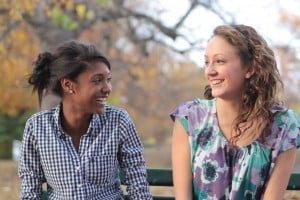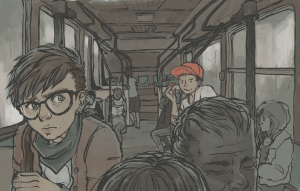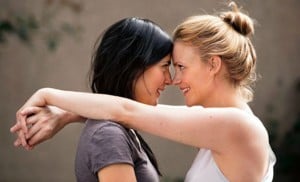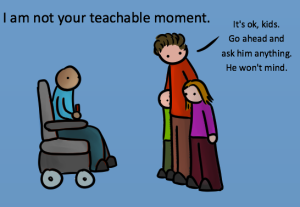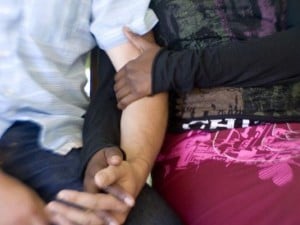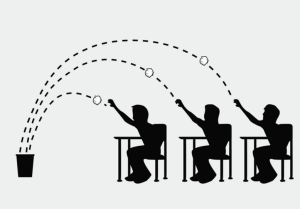This is the story of a pair of twins who felt the urge to reintroduce themselves into a world that thought they knew them – just because they are Muslim women.
Their Story…
Asma and Farheen are twin sisters. While they are unique in personality, talents, goals and aspirations, they have two very clear things in common.
They look identical and they both experience the same struggles with being labelled by belittling and ignorant stereotypes of Muslim women. Asma and Farheen are two women who choose not to wear the Hijab.
In their first year of university, the 19 year old twins found themselves navigating a prejudiced social services system as they decided they needed to leave a claustrophobic and stressful family situation.
When the girls turned to the University’s social services resources, they found themselves looking at each other in confusion when the guidance counsellors acted like they knew their stories, even before sharing them.
The university has several resources in place for students who could not financially afford to leave home, but felt they really needed to.
Asma and Farheen were the perfect candidates for this kind of financial support but experienced some serious resistance and obstacles when talking to guidance counsellors about their problems.
They Didn’t Need To Be Saved…They Needed Support
The guidance counsellor, Helen “acted like she was saving them”, making comments about how she completely understood their situation because she had “worked with other Muslims before”.
Helen had preconceptions and stereotypes informing the advice she gave Asma and Farheen, and some of this advice caused much more harm than good.
Helen told the girls to drop the majority of their courses, assuming they couldn’t handle the work load.
She also pushed the girls to seek psychological counselling instead of simply listening to the requests they were making, particularly access to emergency housing with temporary funding to help them.
This was not the first time the twins felt like they were excluded from a conversation about them, but it would be the last…
While Helen was doing what she thought was best for Asma and Farheen, it was hard for her to hear the girls without looking at them as helpless victims.
For the girls, asking for help was actually extremely brave and strategic. Helen was working from what she thought she knew about Muslim women.
Consequently, she wasn`t listening to what was really happening.
Taking Control of the Conversation
Asma and Farheen didn’t dismiss the violence and difficulty Muslim women experience both in their public and private lives.
They were just fed up with the way that people talk about the women and the way most people treat them.
These stereotypes were not just wrong but also dangerous for them. It made it extremely difficult for them to access safety and stability.
The sisters felt that everyone was talking about them but not with them. So Asma and Farheen decided to break the silence and speak out about violence they experience, and speak about it on THEIR terms.
“We made it in response to the feeling that everyone is talking about us but not with us. We needed to lead the discussion.”
Along with a few other people, they started OUTBURST: Young Muslim Women`s Safety Project. It’s a movement of young Muslim women in Toronto where they define and access safety for themselves.
By safety they mean access to employment services, housing, education, escape from abusive situations and other social services.
The way they felt silenced and neglected by Helen was a serious barrier in their accessing safety and it needed to be addressed.
Through OUTBURST, Asma and Farheen lead discussions to inform people in universities and social services that Muslim women are not helpless victims of their culture, that they are women brave enough to take control of their lives and face serious difficulty getting help from a discriminatory system.
Where They Are Now
Today Asma and Farheen are living on their own, supporting themselves, and are taking some time off school to re-group.
They continue to lead revolutionary conversations throughout many communities about the needs and interests of Muslim women through OUTBURST.
While OUTBURST was one of the ways they inform and shatter stereotypes, the most beautiful aspect of the healing was the words they offered to others experiencing the same level of pain, stereotyping, and exclusion from the conversation.
Some of their advice are:
- Asma- It’s okay to be and think outside the box. Find that thing in life that brings you comfort when you’re down. It’s okay to ask for help when you need it, people put others’ needs before theirs. If you need to take some time off and just sit around and feel what you feel then go ahead. No one teaches you how to love yourself, it’s a painstakingly slow process and you HAVE TO HAVE patience with yourself
- Farheen-Take care of yourself first before you can take care of others. Self-care is really important. There’s no way around it. Whether you’re visibly Muslim or not, someone will always be out there to act like they know everything about you even before you speak. You can listen to their ignorance or speak up and be heard. It’ll always be hard for us. Hard to navigate our life, family, partners, and career. The best thing to do is know who you are always through that entire struggle and continue to stay strong. Even if it means to get out of bed every morning when every part of your body says no but you still get up.
Resources:
- Outburst Tumblr
- Outburst Facebook Page
- Bareed Mista3jal – A Queer, Muslim and Trans Compilation of Stories
Diana Bosnjak is a guest writer for Everyday Feminism. She completed her Masters in Women and Gender Studies and Transnational and Diasporic Studies at the University of Toronto. In her free time she enjoys dancing ungracefully, spending time with her four sisters and trying new foods!
Search our 3000+ articles!
Read our articles about:
Our online racial justice training
Used by hundreds of universities, non-profits, and businesses.
Click to learn more






